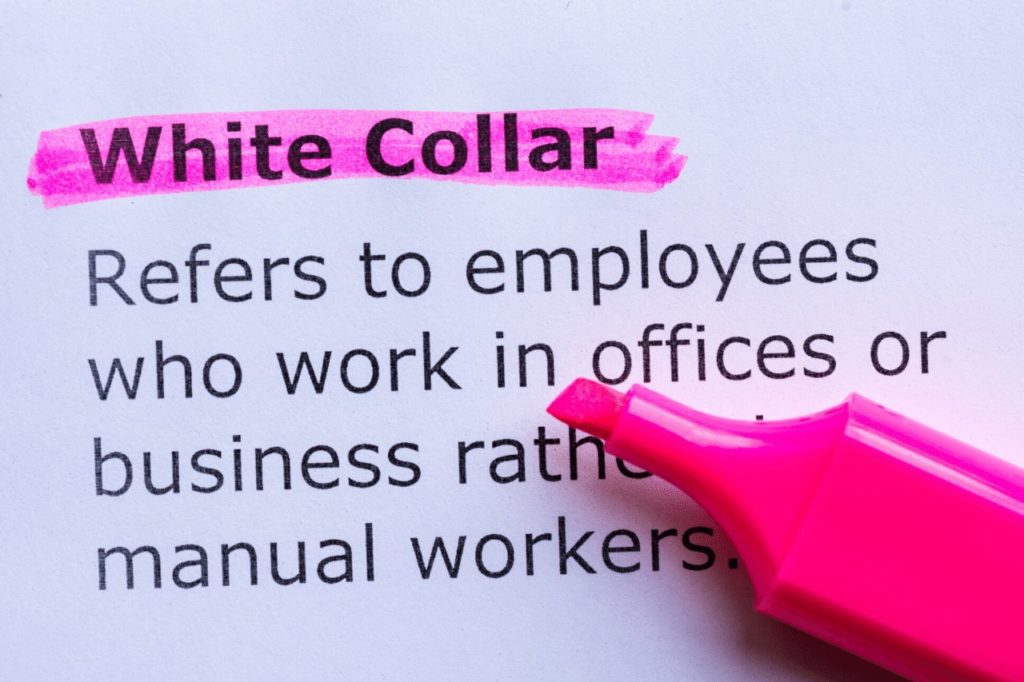Being the victim of a white-collar crime not only depletes your company’s finances but also ruins its reputation. Often, this type of crime is perpetrated by individuals who understand the operational setup of your businesses. It involves committing elaborate schemes for selfish financial gain.
As a business owner, it’s important to stay vigilant at all times because white-collar crimes often leverage weaknesses in your organization’s setup. The crimes also tend to go unnoticed for a long time.
Examples of Common White-Collar Crimes
There are dozens of white-collar crimes, but these are the most common:
Embezzlement
This white-collar crime occurs when an employee or business associate that you entrust to handle company property or money misappropriates it. An instance of embezzlement is when employees find ways of funneling company money illicitly into their bank accounts. Typically, the wrongdoers funnel small amounts at a time to prevent raising a red flag.
Fraud
In the context of white-collar crimes, fraud involves the use of deceit for financial gain. Business owners can knowingly or unknowingly become either the perpetrators or victims of fraud. For instance, if you misinterpret important facts when offering company stock to potential investors, you’re guilty of security fraud, which is a common white-collar crime.
You can also be caught unawares in the web of fraud if an employee uses the company name to dupe unsuspecting individuals. If this comes to light, the spotlight will on the company first before you discover the individual who perpetrated the crime.
Tax Evasion
Many business owners consider paying tax as an unnecessary expense. They mainly engage in tax evasion to save operational costs. This is why some will always find ways of paying less tax or try to stay out of the taxman’s radar. Under state and federal tax laws, businesses are legally obligated to pay tax, irrespective of their scale of operations.
Tax evasion often entails filing returns inappropriately or failure to declare your income and property. If you get caught, you might end up paying even more than what you owed the taxman in the first place. Besides, you could end up in jail. The tax law is somehow punitive. However, paying your taxes in full and on time helps you to avoid a white-collar crime, which is tax evasion.
Bankruptcy Fraud
As a business owner who is burdened with overwhelming debt, you can find some relief by filing for insolvency. However, this often comes at the expense of those you owe money since they will only be given a portion of your non-essential assets. If you take advantage of the Bankruptcy Code to avoid paying your debtors by intentionally hiding company assets when filing for bankruptcy, you can be accused of committing a white-collar crime.
Bribery
Many business owners will do anything to have a competitive advantage in the market. Some even go to the extent of giving bribes to win favors. This white-collar crime has two sides to it. For instance, you may bribe a government official so that a substandard product that you’re offering is allowed on the market.
Likewise, you can be the victim of bribery if an employee is given money by your competitors to reveal insider information about your business. When you nurture a culture of bribery at your company, employees are also likely to follow suit, and this will always be at your expense.
Avoiding/Preventing White-Collar Crimes at Your Business
To prevent white-collar crimes from happening at your company, you should lead from the front. Start by putting checks and balances in place to hold everyone accountable. Likewise, ensure that all your undertakings are ethical. Here’s what you can do to avoid and avoid white-collar crimes at your business:
Undertake Routine Audits
You should develop the habit of undertaking routine audits to pinpoint and seal opportunities for white-collar crimes. Besides, ensure that no single person or group has a lot of control over the company’s books or finances. Audits should involve both internal and external auditors.
Anonymous Reporting
Often, isolated cases end up being full-blown white-collar crimes simply because those who detected them didn’t have an avenue for reporting to their seniors. Therefore, provide your employees with a way of reporting suspicious activities anonymously. This way, you’ll be able to identify potential crimes and nip them in the bud.
Implement a Zero-Tolerance Policy
You should implement and enforce a zero-tolerance policy towards white-collar crimes and related activities at your company. The best defense to white-collar crimes is a good offense. Therefore, work with your company lawyer to create and enforce a policy that outlines the ramifications of engaging in white-collar crime. White-collar crimes are on the rise in the corporate world. Avoiding and preventing these crimes goes a long way in keeping you out of a collision path with government agencies.





